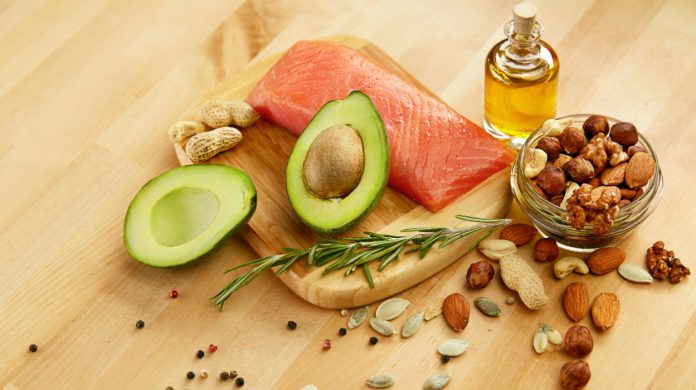Obesity and weight increase are becoming global issues. Obesity is now mostly caused by sedentary lifestyles, hectic schedules, and easily accessible packaged, unhealthy foods.
In addition, the majority of people who want to lose weight simply concentrate on exercise and downplay the importance of eating a balanced diet. However, if properly followed for a brief period of time, a variety of current diets can aid in weight loss.
Diets low in carbs aid in weight loss. They aid in the fight against diabetes and other health problems. The low-carb diet plan has gained popularity due to its observable and quick changes or effects.
Overview of Low Carb Diet for Weight Loss
A low-carb diet causes the body to use stored fat instead of carbohydrates in order to produce energy. You consequently burn more fat. Maintaining a calorie deficit is another key to losing weight. You eat less calories when you stick to a low-carb diet. As a result, many follow this diet in an effort to lose weight.
A diet low in calories that restricts high-carb foods like bread, chips, and sweets is one way to lose weight. Within two weeks of starting a low-carb diet, people begin to lose weight. These diets, however, only work temporarily, so you shouldn’t stick with them for too long. One low-carb diet is the ketogenic diet.
A low-carb diet causes our bodies to produce more ketones, which help our bodies burn fat for energy. As so, it dramatically reduces weight, but doing so for an extended period of time poses health risks. It results in a host of health issues, including constipation, anxiety, exhaustion, menstrual cycle disruption, cramps, and bone degradation (a side effect of ketosis).
Bread, spaghetti, and sweets are examples of high-carb items that should be limited in a low-carb diet. It also limits fruits and vegetables that are high in carbohydrates. A low-carb diet restricts the daily amount of carbohydrates consumed to 50 to 150 grams. A reasonable daily carbohydrate consumption ranges from 200 to 500 calories, as each gram of carbohydrates gives four calories.
Foods to Consume for Low Carb Diet
Non-Veg: Salmon, herring, tuna fish, sardines, eggs, lean chicken, etc.
Veggies: Lettuce, carrots, broccoli, cauliflower, cabbage, kale, Brussels sprouts, zucchini, cucumber, and spinach.
Fruits include pears, blueberries, strawberries, apples, oranges, melons, star fruit, lemons, and green apples.
Nuts and seeds: walnuts, sunflower seeds, almonds, and so forth
Oils and fats: butter, coconut oil, olive oil, fish oil, etc.
Foods to Avoid for Low Carb Diet
Sugar: Added sugar in soft drinks, fruit juices, agave, candies, ice cream, etc.
Refined grains include pasta, bread, cereal, rye, barley, and wheat.
Trans fats: Oils that are partially or fully hydrogenated
dairy products, such as cottage cheese, yoghurt, and milk
excessively processed meals
Starchy vegetables: green peas, white potatoes, corn, and beets, among others.
legumes and grains high in carbs.
The Healthy Me Note
One kind of fad diet that causes temporary or short-term weight loss is the low-carb diet. While it helps you lose weight quickly, stopping it causes your weight to rise quickly as well. Furthermore, these fad diets limit foods high in fiber, dairy, legumes, and grains, depriving the body of other vital minerals and micronutrients that exceed the benefits of a low-carb diet. A low-carb diet may also result in additional health problems such headaches, fatigue, foul breath, and metabolic problems.
Few Popular Types of Low-Carb Diets
Ketogenic Diet
Low in carbohydrates and high in fat is the ketogenic diet. The goal of a ketogenic diet is to reduce your intake of carbohydrates to the point that your body enters ketosis, a state of altered metabolism.
The body uses its fat stores to produce a large amount of fatty acids as a result of the decline in insulin levels. The liver uses the majority of these fatty acids to produce ketones. Ketones are substances that dissolve in water and give your brain energy. As a result, the brain uses ketones more frequently than carbs.
Certain diets also restrict the amount of protein consumed because too much protein can reduce the amount of ketones generated. Studies show that the ketogenic diet reduces body fat, which is why it’s so popular with people—bodybuilders in particular. Carbohydrate intake on a ketogenic diet is typically limited to fewer than 50 grams per day, and sometimes as few as 20–30 grams.
Atkins Diet
The Atkins diet is well recognized for having less carbohydrates. This diet, which is broken down into phases to aid in weight loss, has a strong emphasis on fats and proteins and limits carbohydrate intake. The Atkins diet modifies dietary habits to aid in weight loss. It further asserts that this is a lifelong healthy eating pattern.
Although additional study is required to support this, studies show that it is a relatively healthy method to reduce weight, boost energy, or improve health concerns like metabolic syndrome or high blood pressure.
Low-Carb Diet
Its common name is low-carb or carb-restricted diet. This meal plan is higher in protein and lower in carbohydrates than a typical Western diet.
Priorities are given to meats, seafood, eggs, nuts, seeds, vegetables, fruits, and healthy fats. High-carb foods include grains, high-carb dairy products, potatoes, sugar-filled drinks, and high-sugar junk food.
The Healthy Note
Individuals with diabetes and insulin resistance are more likely to acquire weight. A low-carb diet lowers blood sugar temporarily and helps people lose weight. Ultimately, though, a low-carb diet has more drawbacks than benefits. It is essential to adopt proper lifestyle behaviors and healthy eating habits in order to support the weight-loss journey.
Conclusion
A successful weight-management plan is the cornerstone of a healthy lifestyle. A lasting weight-loss journey requires adopting proper lifestyle behaviors and healthy eating habits.
Furthermore, we must comprehend the fundamentals of healthy food, the need for certain nutrients, physical exercise, appropriate lifestyle changes, and a comprehensive approach to weight loss. There is never a comparison between a quick fix for weight loss and a long-term, healthy solution.
Diets fads have become quite popular very quickly. However, certified dieticians and health professionals do not think that these fad diets, like low-carb diets, are long-term beneficial. Steer clear of fad diets that limit your options for foods or dietary groups.
Your targeted outcomes will come from a balanced diet along with any adjustments needed to meet your health objectives. A successful weight loss journey incorporates a number of elements, such as food modification and lifestyle changes. You may experience temporary weight loss by adhering to severely restricted diets and avoiding carbohydrates, but long-term, healthy weight loss requires perseverance.






























